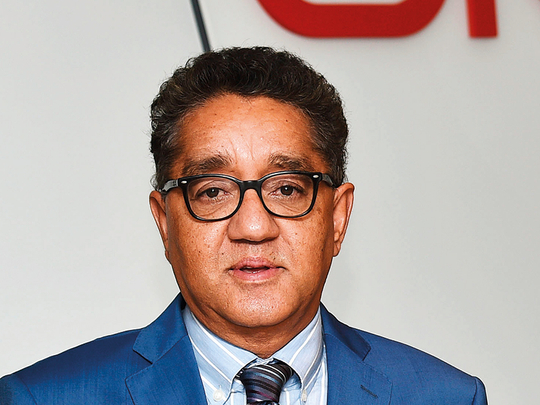
DUBAI
Oracle will be opening the first artificial intelligence (AI) lab in the region at Dubai Internet City by end of January, a top executive said.
Arun Khehar, senior vice-president of applications at Oracle Eastern Central Europe, Middle East, Africa, told Gulf News in an interview that the whole idea is focused on Dubai Government and Federal Government’s stress on emerging technologies like AI, internet of things and blockchain.
“This will be a key contribution to what the government plans to do. The lab will show the power of the technology to the customers. There will be industry solutions relevant to this part of the world,” he said, adding that investments in AI will be integral to drive the future of cloud computing.
“Numbers prove that we use less than 20 per cent of AI in the workspace. Everybody has a lot way to go. This is a perfect country as we get all the support from the ministry and the government,” he said.
Consultancy firm PwC predicts that AI will add $15 trillion to the global economy by 2030.
The benefits of AI are basic — automation, speed, the ability to make better decisions.
“Making AI easy to adopt is critical — a key challenge for companies is that they can’t afford to wait. A recent Oracle research shows an increasing interest in AI/machine learning capabilities — nearly a third of cloud users cite the inclusion of AI as a key requirement of cloud,” Khehar said.
Megha Kumar, research director for software at research firm International Data Corporation, told Gulf News that the UAE’s strategy around AI and IoT will be underpinned with cloud being the baseline infrastructure for the realisation of these projects.
“In Africa, many organisations are open to taking a cloud-first approach due to the cost savings and agility experienced with the cloud. Increasingly, we will witness many new projects taking on a “cloud-first” approach in the region. There is clearly a growing need to optimise processes and organisations clearly need to prioritise their spend,” she said.
The cloud investments in the Middle East and Africa will continue to grow in 2018. IDC is forecasting a year-on-year growth of 19.5 per cent over 2017 for the market to reach $1.14 billion in 2018.
“We have a great cloud opportunity for three key reasons — Smart City and Expo 2020, Saudi Arabia Vision 2030 and Abu Dhabi Vision 2030,” Khehar said.
With value-added tax coming into the picture from January 1 in the UAE, he said that there are several benefits of placing tax functionality in the cloud as the applications and system upgrades are done by vendors on a regular basis.
According to a recent Oracle — Harvard Business Review (HBR) Study, Khehar said that 73 per cent of surveyed businesses in the Gulf Cooperation Council (GCC) states consider VAT deployment as a tipping point to the cloud. They consider VAT implementation as a key opportunity to initiate wider digital transformation projects within their organisation.
Kumar said that VAT will have organisations contemplating the use of cloud for previous project that might have been deemed to be “on-premise” only. It would be far more cost-effective to utilise cloud where the VAT is spread across usage than being a Capex cost.










